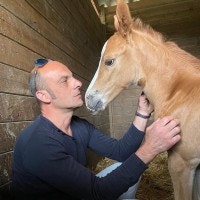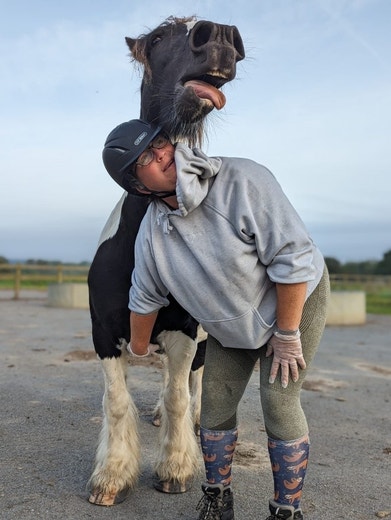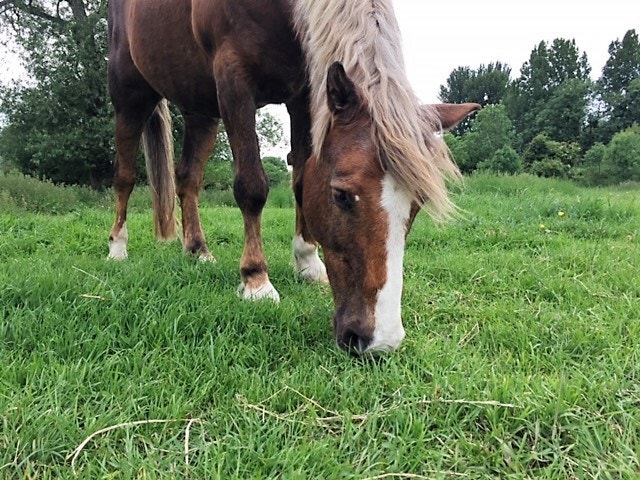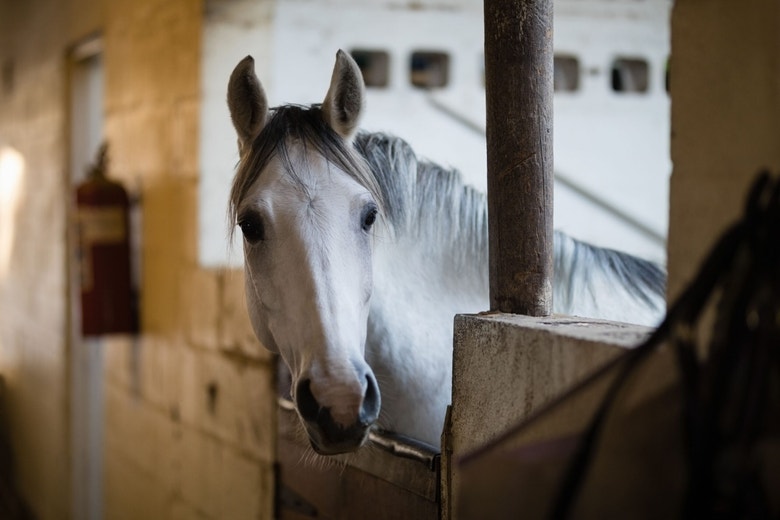The Impact of Obesity on Your Horse's Hoof Health

As horse owners, we are always striving to provide the best care for our horses and ponies, ensuring their happiness, health, and longevity. Yet, amidst our efforts, there's a growing concern that threatens the wellbeing of many horses across the UK: obesity.
Research has shown that obesity rates may be as high as 70% in some groups of leisure horses and ponies. Obesity is now considered a global welfare issue with far-reaching implications for our horses.
In this article, French Olympic Farrier, Medhy Dessaint, explains how obesity affects hoof health, the challenges it poses for farriers, and practical steps you can take to safeguard your horse's hoof health.
Understanding the Effects:
Medhy explains that obesity has a profound impact on both shod and barefoot horses, albeit in different ways. Excess weight gain places increased strain on their hooves, particularly those of the forelegs. This can lead to various issues such as flattened soles, collapsed heels, and compromised hoof structure. For shod horses, the added weight can exacerbate compression within the hoof, potentially causing conditions like laminitis and tendonitis. On the other hand, barefoot horses may experience flaring of the hoof walls and weakened structure, making them more susceptible to injuries and infections.
Challenges Faced by Farriers:
Managing the hooves of obese horses presents challenges for farriers. Hoof deformities and distortions make it difficult to achieve and maintain proper balance and concavity. Effective trimming techniques, such as opening the bars and applying appropriate bevels, are crucial in alleviating strain and promoting hoof health. However, prevention through proper weight management remains the most effective strategy.
Consequences of Hoof Deformities:
Obesity can lead to “significant deformities in the hoof capsule, such as hoof wall separations, poor horn quality, and reduced vascularisation” points out Medhy. These conditions affect the hooves’ ability to support the horse's weight and withstand daily activities. Owners often try to mitigate these issues with supplements or topical treatments, but these are only effective when coupled with a comprehensive weight management plan.
Taking Action:
"Many owners do not realise the impact of obesity on their horse's feet," Medhy explains. Preventing obesity starts with understanding your horse's dietary and exercise needs. Oversupplying energy, whether it comes from feed or forage leads to weight gain and an increased risk of health related issues. Consulting with a nutrition advisor can help tailor a diet that supports your horse's overall health and hoof condition.
Moving Forward:
As horse owners, you play a crucial role in your horse's wellbeing. Medhy stresses the importance of professional support in managing obesity-related hoof issues. "Surround yourself with professionals who can advise on diet and exercise," he advises. By prioritising proper nutrition, exercise, and regular hoof care, you can help prevent obesity and its detrimental effects on hoof health. Collaborating with professionals, including farriers, nutrition advisors, and vets, ensures that your horse receives holistic care that addresses both their weight management and hoof health needs.

Hoof Supplements – Yay or Neigh?
Biotin is a proven nutrient with a key role in supporting strong hoof growth. For some horses with dry, brittle or cracked feet adding extra ingredients, on top of an already balanced diet, can have a hugely positive impact on the strength and resilience of their hooves long term. SPILLERS Hoof Health is a high biotin formula, which combined with other carefully chosen ingredients, targets hoof formation and quality – find out more about our super supplement here.
Join the Fight Against Equine Obesity
At SPILLERS, we are dedicated to providing horse owners with the knowledge and tools they need to combat obesity. By joining our Slimmers' Club, you can access a wealth of advice, camaraderie, and ideas from peers who share your commitment to equine health.
Conclusion:
Your horse's hoof health is integral to their comfort and quality of life. By recognising the impact of obesity and taking proactive steps to manage your horse's weight, you will be helping to safeguard their long-term hoof health and overall wellbeing.
SPILLERS™ is not responsible for nor does it endorse any content written by a third party. We recommend you seek the advice of a qualified vet before proceeding with any diagnosis, treatment, or therapy.
Updated 23.10.2025.
